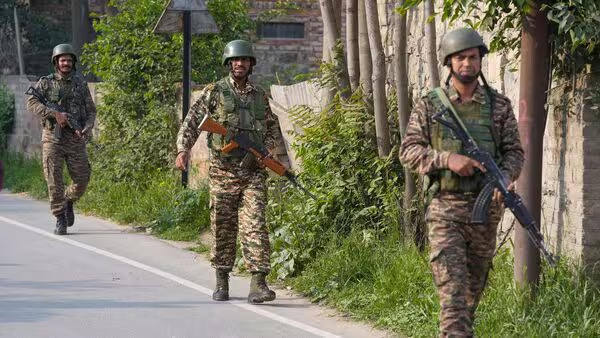
Introduction
Tensions between India and Pakistan have reached a critical point following a deadly terror attack in Pahalgam, Jammu and Kashmir, on April 22, 2025, which claimed 26 lives, mostly tourists. India accuses Pakistan of sponsoring the attack, a claim Pakistan denies. In retaliation, India launched Operation Sindoor on May 7, 2025, targeting nine terrorist infrastructure sites in Pakistan and Pakistan-occupied Kashmir (PoK). Pakistan has condemned the strikes as an “act of war” and promised a robust response. Nationwide civil defense drills in India and heightened military alertness on both sides signal the risk of further escalation. Below are live updates on the unfolding situation, sourced from reliable reports and official statements.
Live Updates (as of May 7, 2025, 01:46 PM IST)
13:30 IST: Indian Armed Forces Brief on Operation Sindoor
The Indian Army, Navy, and Air Force jointly executed Operation Sindoor, a precision strike operation targeting nine terror camps, including Jaish-e-Mohammad’s stronghold in Bahawalpur and Lashkar-e-Taiba’s Muridke headquarters. The strikes, conducted from Indian airspace using special munitions, were described as “focused, measured, and non-escalatory,” avoiding Pakistani military installations. Indian officials claim the operation aimed to dismantle terror networks responsible for the Pahalgam attack.
13:15 IST: Pakistan Reports Civilian Casualties, Vows Retaliation
Pakistan’s military reports at least eight civilian deaths and 35 injuries from Indian strikes in Punjab and PoK, labeling the attacks a “flagrant violation” of sovereignty. Prime Minister Shehbaz Sharif called the strikes a “cowardly act of war,” stating, “Pakistan will respond forcefully at a time and place of its choosing.” Pakistani jets are on high alert, and airspace restrictions have been imposed.
12:55 IST: Pakistan Retaliates Along LoC
Pakistan’s army initiated artillery and mortar shelling along the Line of Control (LoC) in Jammu and Kashmir, killing seven civilians, including a woman and two children, and injuring 38 others. Indian forces report ongoing exchanges of fire. Jammu and Kashmir Chief Minister Omar Abdullah emphasized, “No one wants war, but Pakistan must stop its support for terrorism.”
12:36 IST: Indian Airspace and Travel Disrupted
Northern India’s airports, including those in Delhi and Dharamsala, have suspended commercial flights due to heightened military activity. Indian carriers face challenges as Pakistan has closed its airspace to Indian airlines, echoing measures taken after the Pahalgam attack. The closure is impacting IPL travel plans and civilian movement.
12:00 IST: Nationwide Mock Drills in India
India is conducting civil defense mock drills across 244 districts, the first such exercise since 1971, to prepare civilians for a potential war scenario. The drills include air raid siren tests, blackout simulations, and evacuation rehearsals. Districts like Barmer (Rajasthan) and 14 areas in Kerala are actively participating. The Union Ministry of Home Affairs ordered the drills amid rising tensions.
11:49 IST: Women Officers to Brief on Operation Sindoor
Indian women military officers are scheduled to provide a detailed briefing on Operation Sindoor, highlighting the role of female personnel in the operation. The briefing will focus on the strategic planning and execution of the strikes.
10:40 IST: International Reactions
The United Nations Security Council held a meeting on India-Pakistan tensions, urging both nations to exercise “restraint.” China, a close ally of Pakistan, is closely monitoring the situation. Global leaders warn of catastrophic consequences if the nuclear-armed neighbors fail to de-escalate.
10:05 IST: Political Reactions in India
BJP MP Manoj Tiwari praised the strikes, stating, “No Pakistani civilians were harmed, and the focus was on terror infrastructure.” Conversely, BJP MP Kangana Ranaut expressed national anxiety, saying, “The country is in a war, and we are all nervous.”
09:25 IST: Indian Air Force Drills in Rajasthan
The Indian Air Force is conducting large-scale military exercises along the Rajasthan-Pakistan border, described as a “routine” operation but seen as a show of strength. A Notice to Airmen (NOTAM) was issued for May 7-8, 2025.
08:40 IST: Pakistan’s Leadership Responds
Pakistan’s Deputy Prime Minister and Foreign Minister Ishaq Dar called the Indian strikes a violation of the UN Charter, while Defense Minister Khawaja Asif warned of a “befitting reply.” Pakistan’s Foreign Office condemned the use of standoff weapons from Indian airspace.
06:10 IST: Strategic Context
India’s upgraded Ayni airbase in Tajikistan is reportedly causing concern in Pakistan, as it could enable strikes bypassing Pakistan’s eastern defenses. The base, supported by India since the 1990s, underscores India’s strategic positioning.
Earlier Developments
- May 6, 2025: Reports surfaced of Turkish military support to Pakistan, with six C-130 aircraft and a warship arriving in Karachi. Both nations deny delivering military hardware, but the timing raises suspicions.
- May 4-5, 2025: Pakistan warned of Indian military aggression, citing credible intelligence of an attack within 24-36 hours. Tensions were already high after Pakistan suspended visas, trade, and the 1972 Simla Agreement.
- April 28, 2025: Pakistan’s Defense Minister Khawaja Asif warned of an imminent war within 2-4 days, prompting troop reinforcements along the border.
Background
The current crisis stems from the April 22, 2025, terror attack in Pahalgam, which India attributes to Pakistan-backed groups like Jaish-e-Mohammad. The attack prompted Prime Minister Narendra Modi to grant operational freedom to the armed forces and hold high-level meetings to plan a response. India’s actions, including Operation Sindoor, follow a pattern of retaliatory strikes, similar to the 2019 Balakot airstrike. Pakistan’s denial of involvement and its counter-accusations of Indian aggression have fueled a cycle of escalation. Both nations, nuclear-armed since 1998, have fought three major wars (1948, 1965, 1971) and the 1999 Kargil conflict, primarily over Kashmir.
Civilian Impact and Preparations
India’s mock drills aim to train civilians and students in air raid safety, blackout protocols, and evacuation procedures. The last such drill occurred in 1971, reflecting the gravity of the current situation. In Pakistan, civilian areas near the LoC are under heavy shelling, with significant casualties reported. Both nations have restricted cross-border movement, canceled visas, and imposed media bans, with India blocking 16 Pakistani YouTube channels.
Military Capabilities
India has bolstered its arsenal with French Rafale jets, Israeli Heron drones, and US Predator drones on order. Pakistan counters with Chinese J-10 jets and Turkish Bayraktar and Akinci drones. Military experts warn that even a limited conflict risks rapid escalation, given both nations’ nuclear capabilities. A 2019 study resurfaced, predicting a potential nuclear war in 2025 with catastrophic global fallout, underscoring the stakes.
What to Expect
- India: Continued military exercises, heightened border security, and diplomatic efforts to justify Operation Sindoor. Civil defense measures may intensify if tensions persist.
- Pakistan: Potential retaliatory strikes, as promised by leadership, and increased coordination with allies like Turkey and China.
- International Community: Pressure for de-escalation, with the UN and major powers likely to mediate.
Conclusion
The India-Pakistan conflict is at a precarious juncture, with military actions and rhetoric pushing both nations toward a potential full-scale confrontation. Operation Sindoor marks a significant escalation, and Pakistan’s promised response could further destabilize the region. Civilians on both sides face immediate risks, while global leaders urge restraint to avoid a nuclear catastrophe. Stay tuned for real-time updates as the situation evolves.







